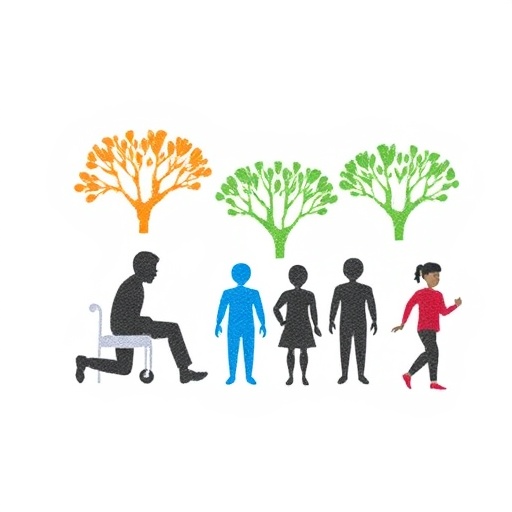In a groundbreaking analysis published in Health Research Policy and Systems, Mhazo and Maponga delve into an essential yet often overlooked aspect of public health: how the framing of ideas influences health system strengthening in Zimbabwe. Their research highlights that the language and narratives used to present health policy can significantly impact public perception and ultimately shape the effectiveness of health interventions. This is not merely an academic discussion; the implications touch on frontline health care delivery, governance, and community engagement.
The study is set against the backdrop of Zimbabwe’s complex health landscape, where decades of economic hardship and political strife have strained health systems. Despite these challenges, there is a vital need to cultivate a more robust health framework, and the researchers argue that the way health issues are communicated plays a critical role in inspiring change. Understanding this dynamic is crucial for health policy makers, practitioners, and advocates who wish to deploy effective strategies for health reform.
At the core of their analysis lies the concept of “framing.” The authors explain that framing refers to how information is presented to audiences, affecting their interpretation and emotional response to health issues. Different frames can evoke disparate reactions; for instance, positioning health interventions as community-centric rather than government-imposed can foster greater acceptance among the population. The authors cite numerous examples where positive framing has successfully mobilized community action and improved health outcomes, underscoring the power that choice of words and narratives can exert over public sentiment.
Moreover, Mhazo and Maponga provide a comprehensive examination of various framing strategies employed across different health initiatives in Zimbabwe. They reveal that successful interventions have often employed a narrative that highlights local success stories and harnesses cultural resonances. For example, initiatives promoting maternal health have gained traction by framing the discussion within the context of community responsibility and pride. By aligning public health goals with cultural values, the authors argue, health systems can achieve a synergistic effect that propels community engagement and encourages participation.
In contrast, the researchers also caution against negative framing, which can lead to stigma and alienation. Initiatives that portray health challenges merely as failures or burdens can backfire, pushing communities away from seeking help. Mhazo and Maponga delve into case studies where negative framing hindered progress, illustrating the necessity of strategic communication in fostering a positive environment conducive to health system strengthening.
The authors emphasize the role of social media and modern communication platforms in shaping public discourse around health. They note that as these channels become increasingly prevalent, the potential for framing to influence health behaviors escalates dramatically. Campaigns that leverage engaging narratives can go viral, amplifying messages that are crucial for public health. However, this also poses risks, as misinformation can spread just as quickly. Thus, they argue, health communication must be carefully tailored to leverage positive framing while combatting the spread of falsehoods.
Furthermore, Mhazo and Maponga advocate for a multi-stakeholder approach to health system strengthening in Zimbabwe. They emphasize that framing should not solely be the prerogative of elite policymakers; community voices must be included in the conversation. By integrating perspectives from diverse societal sectors, including traditional leaders, health practitioners, and community members, health initiatives can develop a more nuanced understanding of local needs and values. This collective approach to framing health issues can ensure that the messages resonate more broadly and meaningfully with the populace.
Importantly, the authors highlight the implications of their findings beyond Zimbabwe. They suggest that the lessons drawn from their analysis can be extrapolated to other contexts facing similar public health challenges. In an increasingly interconnected world, the framing of health-related narratives can influence global health initiatives and international policy discourse. Therefore, their findings serve as a call to action for health advocates and leaders globally to pay close attention to the language they use in advocacy and communication efforts.
In conclusion, Mhazo and Maponga’s insightful research provides a critical lens through which to view health system strengthening in Zimbabwe. They challenge policymakers and advocates to think carefully about the narratives they create and share, underlining that the very ideas and language used in health discourse matter significantly. In an era where health challenges are abundant, the power of framing can be harnessed to foster collective action, leadership, and ultimately, strengthened health systems.
The study serves as a clarion call for all stakeholders in the health sector to recognize that ideas are not merely abstract concepts, but powerful tools capable of driving real-world change. By carefully considering how health issues are framed and communicated, Zimbabwe can pave the way toward a more resilient and effective health system that serves all its citizens.
Ultimately, the profound insights offered by Mhazo and Maponga resonate not just in the corridors of health policy but echo in the hearts and minds of communities striving for better health outcomes. Their work encourages a fundamental rethinking of how health initiatives are presented, framing them as opportunities that enhance community resilience and collective well-being.
Subject of Research: Health system strengthening through effective communication and framing in Zimbabwe.
Article Title: Ideas matter: An analysis of the effects of framing on health system strengthening in Zimbabwe.
Article References:
Mhazo, A.T., Maponga, C.C. Ideas matter: An analysis of the effects of framing on health system strengthening in Zimbabwe.
Health Res Policy Sys 23, 111 (2025). https://doi.org/10.1186/s12961-025-01327-7
Image Credits: AI Generated
DOI: 10.1186/s12961-025-01327-7
Keywords: health systems, framing, public health, Zimbabwe, communication strategies, community engagement, policy analysis.




